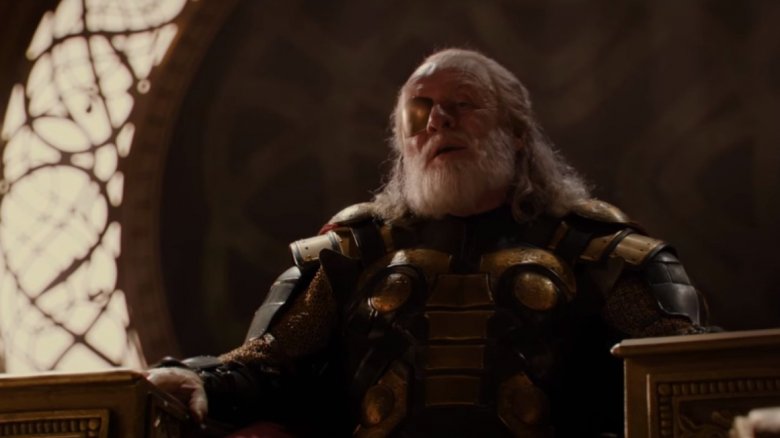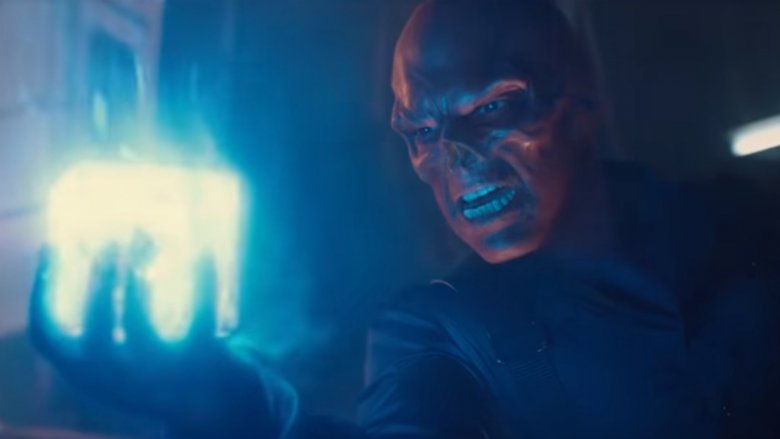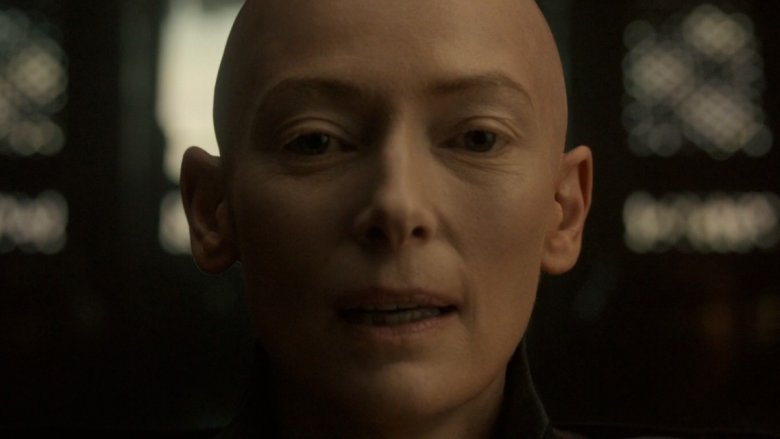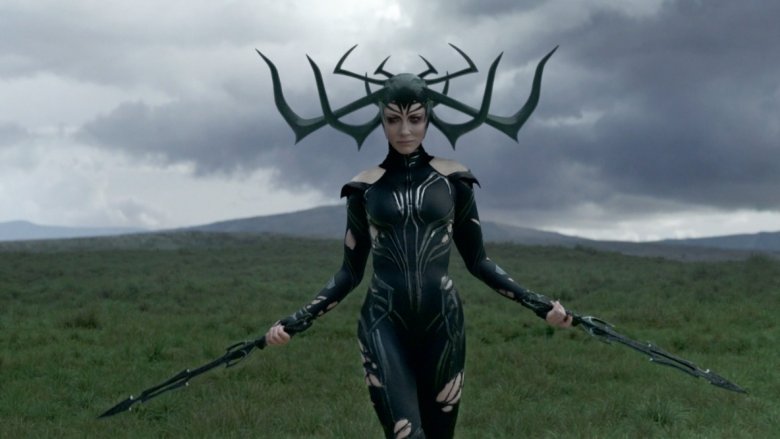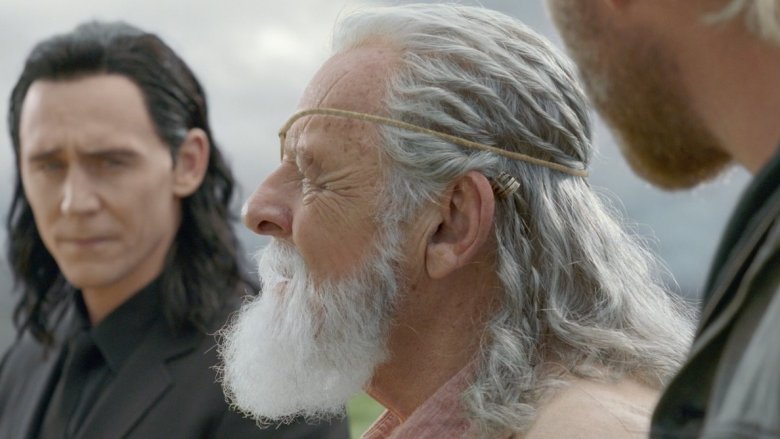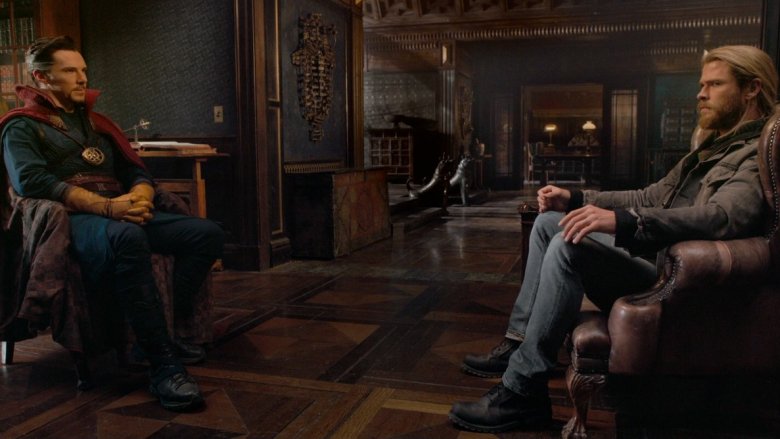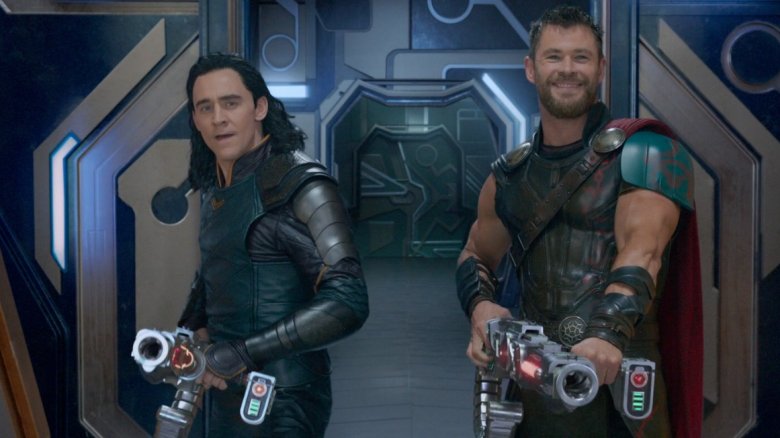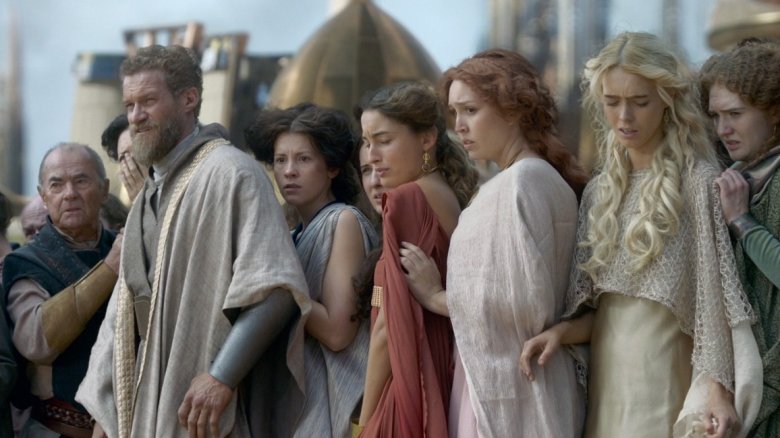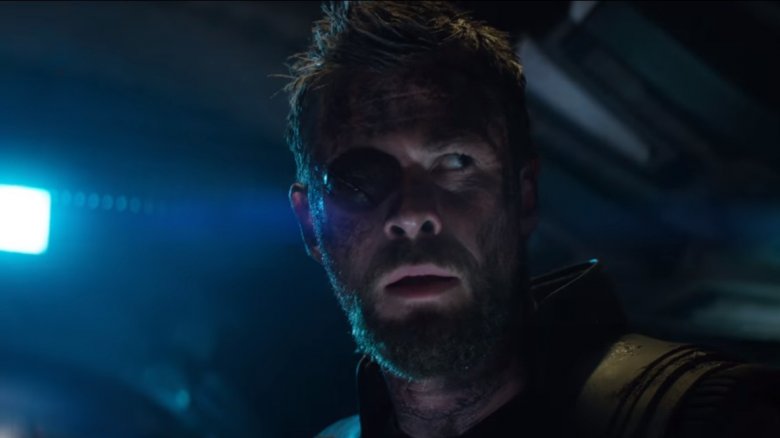How Thor: Ragnarok Radically Changed The MCU And No One Seemed To Notice
The ranks of the Avengers in the comics include soldiers, sorcerers, sentient robots, mutants, spies, mercenaries, cowboys, monsters, aliens, scientists, blind lawyers, kung-fu warriors, African kings, Aquatic kings, and smart-asses in spider suits. In fact, not only do pagan gods come in and out of the ranks of the Avengers on a regular basis, but in the comics, those gods don't limit themselves to the Nordic. Gods of Greek myth and heroes of Egyptian legend have Avengers membership cards. The Avengers of the comics have fought angry gods, alien hordes, hungry vampires, and everything in between.
As cool as that might sound, it posed a real challenge for the creators at Marvel Studios. It's one thing to have gods and robots and wizards rubbing elbows in a comic book, but in live-action films striving to be taken seriously, that's a bit more difficult.
The solution was a consistent theme throughout the MCU films: the notion that in the Marvel world, magic and science are the same. The characters we might otherwise perceive as gods or magical monsters are just aliens. A flying hammer and a rainbow bridge are no different than one of Rocket Raccoon's cool gadgets.
With the release of Thor: Ragnarok, all that changed — and with it, some fundamental aspects of the Marvel Cinematic Universe. Thing is, the movie was so much fun, no one seemed to notice. Here's how Thor: Ragnarok radically changed the MCU. Spoilers ahead!
We are NOT gods
In the comics, there's no argument: Thor is a god. So are Odin and Ares and a bunch of other gods. With the exception of Mark Millar and Bryan Hitch's re-imagining of the Avengers in their fantastic Ultimates series — in which it's unclear until the end of the series whether Thor is actually a god or a delusional nurse who stumbled upon his superpowers — it never seems to bother anyone that all these gods of Greek and Norse mythology are hanging out in New York City and having brawls.
This hasn't been the case in the films. In 2011's Thor it was implied that Asgardians were not gods, but aliens mistaken as gods by the Vikings. Darcy introduces the idea to Jane Foster and Erik Selvig.
You could argue there was no confirmation of this in Thor. Besides, while Thor never calls himself a god in early movies, plenty of other characters do. Black Widow, Tony Stark, and Nick Fury all call him a god. Even the Hulk calls Loki a "puny god." But they're all members of the same "primitive" culture unable to comprehend the Asgardians. Loki refers to himself as a god, of course, but considering his arrogance, he'd likely call himself that whether he was from Asgard, Jotunheim, or Hoboken.
By the first few minutes of 2013's Thor: The Dark World, there's no argument. It's confirmed. "We are not gods," Odin tells Loki. Not counting his narration over the prologue, it's one of Odin's first lines of dialogue in the film. "We are not gods. We are born. We live. We die. Just as humans do."
Magic vs. Science or Magic = Science?
It seems clear the storytellers of the MCU wanted to prepare audiences for the synergy between science and magic they would see in Avengers by laying the groundwork in Thor and Captain America: The First Avenger.
In Thor, the Odinson tells Jane Foster, "Your ancestors called it magic and you call it science. Well, I come from a place where they're one and the same thing." He goes on to show Foster in her own notes how the Yggdrassil, or World Tree, of Norse myth connects with her own theories of the universe. In the post-credits scene when Dr. Selvig meets Nick Fury, the latter unveils the Tesseract, saying, "Legend tells us one thing, history another. But every now and then we find something that belongs to both."
According to the Red Skull of Captain America: The First Avenger, this understanding of the synergy between magic and science is precisely what makes him superior to others. As he toys with the Tower Keeper who guards the Tesseract, he tells them they are alike because "what others see as superstition, you and I know to be a science." Later, when Hitler sends his underlings to get an update from the Red Skull, one of the Nazis scoffs at the villain, asking him if he plans to win the war with "magic." The Red Skull corrects him. "Science," he says. "But I understand your confusion. Great power has always baffled primitive men."
Part, but not the whole
The merging of science and magic is a consistent theme through many of the other films. Usually the connections are blatant, but sometimes it's more subtle.
In Thor: The Dark World, when Thor brings Jane Foster to Asgard to find out what's happened to her, Foster is subjected to tests directed by an Asgardian woman named Eir. Foster thinks she recognizes what's happening and asks, "That's a quantum field generator, isn't it?" Eir tells her it's a Soul Forge. Jane asks, "Does this Soul Forge transfer molecular energy from one place to another?" Eir tells her it does. "Quantum field generator," Jane whispers to Thor, clearly pleased with herself.
The Soul Forge and other Asgardian tech is operated with the same motion/touch methods we not only see Tony Stark using in Iron Man, but that we see in the everyday lives of aliens in Guardians of the Galaxy and the vibranium-enhanced Wakanda of Black Panther.
Even in Doctor Strange, arguably the magic heart of the MCU, the connections between science and magic are clear. When Strange first meets her, the Ancient One shows him a chakra chart, an acupuncture chart, and an MRI scan. She tells him that each was created by someone who could see "in part, but not the whole." She invites him to think of magic spells as "programs," describing them as "The source code that shapes reality." When Strange asks how he could possibly ever learn to do what she does, the Ancient One responds by asking him how he was able to be a neurosurgeon.
We see it even in Ant-Man. The subatomic realm where Ant-Man almost loses himself could easily find a home in the dimensions Strange's astral form is sent flying through by the Ancient One in Doctor Strange.
Just kidding, we're totally gods
With Thor: Ragnarok, everything changed.
From the beginning, the change is clear. Surtur's rantings about the coming of Ragnarok are all about prophecy, and prophecy hasn't reared its head in the MCU before now.
Without any kind of explanation, suddenly the Asgardians are gods. Thor, Loki, Odin, and Hela all refer to themselves and others as gods. "I'm the goddess of death," Hela sneers at Thor in the film's climax. "What were you the god of again?" In a psychic conversation with Odin, complaining he can't defeat Hela without his hammer, Odin asks Thor, "Are you the god of hammers?" Doctor Strange calls Thor the god of thunder when he meets him and Thor refers to himself the same way several times. He calls his brother the god of mischief and his sister the goddess of death. He's a god, she's a god, everyone's a god. If Ray from Ghostbusters was in Thor: Ragnarok, he'd be a god too. And Winston wouldn't even have to say anything.
In a way, regardless of quality,Thor: Ragnarok is kind of a reverse Highlander 2. While Highlander 2 just snapped its fingers and, without any kind of attempt at audience preparation, took all these swordsmen of legend and made them aliens from outer space, Thor: Ragnarok took a bunch of space aliens and made them gods. The transition was easier for Thor: Ragnarok, because the characters already looked like gods and spoke like gods, whereas none of the guys in Highlander were dressed in shiny jumpsuits or had lightsabers.
A goat at a banquet table
One of the starkest differences between Thor: Ragnarok and what came before is Odin's behavior toward Earth and humans. Before Ragnarok, Odin speaks of humans as unfortunately inferior at best. At worst, he just flat out insults them.
Earth is just one of many realms to Odin in the first two Thor films, but in Ragnarok he speaks of it with reverence. He speaks of Norway as a long lost mother country.
In Thor: The Dark World, as he tries to convince Thor to forget Jane Foster, Odin tells his son, "Human lives are fleeting. They're nothing." Later, when Thor brings Jane to Asgard to find out what's wrong with her, Odin says of humans, "Illness is their defining trait." Demanding Thor send Jane back to Earth, Odin says, "She does not belong here in Asgard any more than a goat belongs at a banquet table."
Most people would consider a bad first reaction to their significant others meeting the 'rents. Yet in Ragnarok, when Doctor Strange send the sons of Odin to meet their father in Norway, Odin tells Loki and Thor to remember the place. He notes its beauty. He calls it "home." Later, as he psychically contacts the nearly defeated Thor, Odin tells his son that Norway could be a new home to the Asgardian survivors.
Tea?
Doctor Strange was released only a year before Thor: Ragnarok, yet in the scene when Thor finds himself in the Greenwich Village Sanctum Sanctorum, magic already works much differently than it did in Strange's own film.
In Doctor Strange, magic is portrayed as following specific rules. Almost everything the different magic users do begins with the fiery patterns they make in the air, or in mystical items imbued with power like the sling rings or Strange's Cloak of Levitation. But when Thor and Strange meet in Thor: Ragnarok, things work differently. Strange teleports himself and Thor throughout the house at a pace that disorients and annoys Thor, without using his sling ring or making even the slightest motion with his hand. Thor finds himself inexplicably holding a cup of tea and then a bottomless mug of beer.
In Strange's own film these things would seem impossible, yet here magic is being handled in the more undefinable way we see in older comics. He doesn't even bother with a single "Hoary Hosts of Hoggoth" or "by the Crimson Bands of Cyttorak" or something silly like that.
Just another spaceship
Ironically, even though Thor: Ragnarok ended the established godlessness of Asgard and the magic/science synergy, much of what makes the film so damn fun is exactly what it's throwing away.
Thor's adventures on the planet Sakaar give us some of the best moments of the film. It's where Thor battles the Hulk, where we meet the hilarious Grandmaster and the tough-as-nails "boozehead" Valkyrie. And of course it's where we learn about Thor and Loki's well-loved childhood game, "Get Help."
None of it would make sense without everything that's come before — and everything Ragnarok is willfully forgetting. The fact that the Asgardians were established as aliens instead of gods is precisely why Thor, Loki, and Valkyrie are not as out of their element as they otherwise might be. Thor isn't shocked by meeting a group of aliens moments after he arrives on Sakaar. He isn't confused by their technology. Valkyrie clearly has an intuitive command over her spaceship, using it to easily mow down the aliens trying to kidnap Thor even though she's drunk. Loki navigates the technology so well he's able to steal security codes from the Grandmaster. Odin's sons wield laser rifles as comfortably as we've seen them wield hammers and daggers respectively, and when Thor steals the Grandmaster's ship, he says it should be no problem to figure out because after all, "it's just another spaceship." Indeed, he handles it just fine.
Even Bruce Banner, with all his Ph.Ds, is utterly shocked by the fact that he's on an alien planet, stressing him out to the point where he almost turns back into the Other Guy over it. Yet the comparably meatheaded Thor is just fine. As if he were just another alien, not a god, as we've been told up until now.
Inconsistencies and questions
Now that it's done, now that it's established Thor and the rest are gods, it brings up more questions.
In the comics, it isn't just Thor and Loki and the named characters of Asgard who are gods. Everyone on Asgard is a god. Skurge the Executioner, Lady Sif, the Warriors Three, Heimdall, and all the rest. Every man, woman, and child. If there's an Asgardian dude who cleans the toilets of Asgard, then the dude who cleans the toilets of Asgard is a god.
Does this mean all the Asgardians of the MCU are gods? If it does, then why are they such cannon fodder when it comes to fighting Hela's zombies or Dark Elves? How could there be such a thing in Asgard as an innocent civilian or bystander? If they're gods, they should all be kicking butt and taking names. They should all be blasting glowy stuff. Every time someone attacks Asgard, it should look like a joint Justice League/Avengers dance party.
What about Loki? Loki is referred to as a god multiple times in Ragnarok, but does that make sense? One of the biggest differences between Norse myth and the Lee/Kirby version is that in the original, Loki and Thor are not brothers, adoptive or otherwise. If the Loki of the MCU is actually a Frost Giant adopted by Asgardians, how is he a god? Are you a god if you just hang out with other gods?
Speaking of the source material, what about Ragnarok? In Norse myth, Ragnarok isn't just the end of the Norse gods — it's the end of everything. The gods, the humans, Earth, all the nine realms. Everything. Does that mean Ragnarok isn't over? Is there more to come?
What's to come
Then there's the question of how the changes Thor: Ragnarok made to the MCU will impact future movies.
In spite of its huge cast, Avengers: Infinity War should give Thor a key role in the fight against Thanos. Thanos, even without the Infinity Stones, is supposedly the most powerful being in the universe. If Thor is now a god, then he's probably going to be the only one even able to keep up with the Mad Titan.
Asgard is gone and the end of Ragnarok shows us its survivors heading to Earth. The movie already gave us some reflections of what's been going on in the comics for the last few years, such as the loss of Thor's hammer (Jane Foster spent a long period of time wielding Mjolnir in the comics) and the loss of his eye (Thor didn't lose an eye in the comics but he did lose an arm, and he recently met a future version of himself who lost an eye). In the comics, the Asgardians abandoned what they now call Old Asgard and settled Asgardia, a city floating above America. Might this happen in the movies? Might this bring Thor in conflict with his fellow Avengers if America doesn't isn't happy about pagan gods floating above it?
Will Thor's godhood limit how much longer Chris Hemsworth can play the Odinson? While Thor is an ageless god, Hemsworth isn't.
Will this harm the integrity of the MCU? Who's to say Marvel Studios won't just decide "Oh no, we're going to do the whole not-gods thing again" the next time? Or will this help foster a sense of creative freedom that will only improve the quality of the films? The same debate has been going on about comics for years in regards to new writers ignoring or changing what previous writers established. We'll see the results soon enough.
